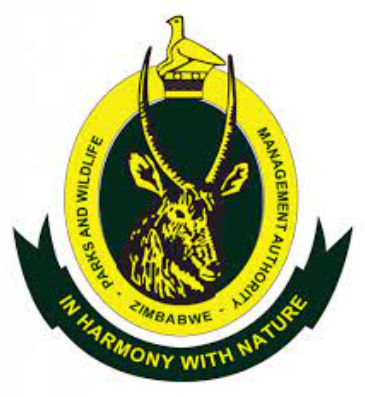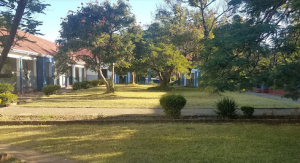The Essentials
Type of Institution: College
Fees per Semester:
Address: P. Bag 9036, Masvingo, Zimbabwe
Phone Number: 071 705 1411
Director General: Dr F. U. Mangwanya
Number of students: 300+
Facebook: https://www.facebook.com/ZIWCZIMPARKS/
Email: ziwc@zimparks.org.zw
Table Of Contents
- Overview
- Contact Details
- Address
- Location
- School Fees
- Courses & Programs
- Vacancies and Entry Requirements
- Logo
- Notable Alumni
- Pros and Cons
- Author’s Review
Overview
Focus Area
The Zimbabwe Institute of Wildlife Conservation (ZIWC) is dedicated to training and educating individuals in wildlife management, conservation, and related environmental fields. The institute plays a significant role in promoting sustainable wildlife conservation practices within Zimbabwe and the Southern African region.
Facilities
ZIWC is equipped with specialized facilities that support the practical training of students, including wildlife reserves, laboratories, and research stations. These facilities are essential for conducting fieldwork and research in wildlife conservation.
Research and Collaboration
The institute is involved in various research projects aimed at enhancing wildlife conservation efforts. It collaborates with local and international organizations, government agencies, and NGOs to address conservation challenges in Zimbabwe.
Student Life
Students at ZIWC are engaged in both academic and field activities, with opportunities to participate in wildlife conservation projects, community outreach, and environmental education programs. The institute fosters a strong sense of responsibility toward wildlife conservation among its students.
Career Prospects
Graduates from ZIWC are well-equipped to pursue careers in wildlife conservation, park management, environmental consultancy, and related fields. They often find employment with government agencies, conservation NGOs, and private wildlife reserves.
Zimbabwe Institute of Wildlife Conservation Contact Details
You can contact Zimbabwe Institute of Wildlife Conservation via their landline, email or you can visit their facebook page for further contact details.
Phone Number: 071 705 1411
Facebook: https://www.facebook.com/ZIWCZIMPARKS/
Email: ziwc@zimparks.org.zw
Zimbabwe Institute of Wildlife Conservation Address
Bag 9036, Masvingo, Zimbabwe
Zimbabwe Institute of Wildlife Conservation Location
Zimbabwe Institute of Wildlife Conservation is situated in the Masvingo province just 32km away from Masvingo city on the Masvingo-Bulawayo highway.
Zimbabwe Institute of Wildlife Conservation Fees
Please contact Zimbabwe Institute of Wildlife Conservation via landline or email them to get the latest and accurate fees structure as it is not listed on their official site.
Zimbabwe Institute of Wildlife Conservation Courses & Programs
The Zimbabwe Institute of Wildlife Conservation (ZIWC) offers a variety of courses and programs focused on wildlife conservation, management, and environmental stewardship.
Diploma in Wildlife Conservation and Management
Duration: 2 to 3 years
Description: This program provides comprehensive training in wildlife management, ecology, and conservation techniques. It covers topics such as wildlife biology, habitat management, biodiversity conservation, and sustainable use of natural resources. Students also gain practical skills through fieldwork and internships in wildlife reserves and conservation areas.
Career Path: Graduates can pursue careers in wildlife management, conservation agencies, park management, and environmental consultancy.
Certificate in Wildlife Law Enforcement and Anti-Poaching
Duration: 6 months to 1 year
Description: This certificate course focuses on the legal and practical aspects of wildlife protection, including anti-poaching strategies, wildlife law enforcement, and community engagement. It is designed for individuals working in or aspiring to work in wildlife protection roles, such as park rangers or law enforcement officers.
Career Path: Ideal for those interested in roles related to wildlife protection, law enforcement, and anti-poaching operations.
Certificate in Wildlife Habitat Management
Duration: 6 months to 1 year
Description: This program teaches students about the management and restoration of wildlife habitats. It covers ecological principles, habitat assessment, and the implementation of habitat management plans to ensure the sustainability of wildlife populations.
Career Path: Graduates can work in habitat management, environmental consultancy, or with NGOs focused on habitat restoration.
Short Courses and Workshops
Duration: Varies (from a few days to several weeks)
Description: ZIWC offers a range of short courses and workshops designed to update professionals on the latest techniques and best practices in wildlife conservation. Topics may include wildlife monitoring, community-based conservation, and wildlife conflict resolution.
Target Audience: These are aimed at conservation professionals, park managers, rangers, and individuals seeking to enhance their skills in specific areas of wildlife conservation.
Research and Internship Programs
Duration: Varies based on project scope
Description: ZIWC provides opportunities for students and professionals to engage in research projects and internships. These programs allow participants to gain hands-on experience in wildlife conservation, conduct field research, and contribute to ongoing conservation efforts.
Career Path: Beneficial for those looking to deepen their expertise in conservation research and gain practical experience in the field.
Community-Based Natural Resource Management (CBNRM) Program
Duration: Varies
Description: This program focuses on the involvement of local communities in the management and conservation of natural resources. It covers strategies for empowering communities to take an active role in wildlife conservation, benefit-sharing models, and conflict resolution between humans and wildlife.
Career Path: Suitable for individuals interested in working with NGOs, government agencies, or community-based organizations focused on sustainable natural resource management.
Zimbabwe Institute of Wildlife Conservation Vacancies and Entry Requirements
Diploma in Wildlife Conservation and Management
Vacancies
Available for students who wish to pursue a career in wildlife conservation and management.
Entry Requirements
Academic Qualifications:
*A minimum of five O-Level passes, including English Language, Mathematics, and at least one science subject (e.g., Biology, Agriculture, Geography).
*A-Level passes in relevant subjects (e.g., Biology, Geography, Environmental Science) are advantageous but not mandatory.
*Age: Typically between 18 and 30 years old.
Other Requirements:
*A passion for wildlife conservation and a demonstrated interest in environmental issues.
*Some programs may require an interview or entrance test.
Certificate in Wildlife Law Enforcement and Anti-Poaching
Vacancies
Available for individuals interested in wildlife protection and law enforcement.
Entry Requirements
Academic Qualifications:
*A minimum of five O-Level passes, including English Language.
*Experience in law enforcement, military, or a related field is an advantage but not mandatory.
*Age: Typically between 18 and 40 years old.
Other Requirements:
*Physical fitness and the ability to work in challenging environments.
*A background check may be required for those entering law enforcement roles.
*Some courses may require an interview or assessment test.
Certificate in Wildlife Habitat Management
Vacancies
Available for individuals interested in habitat conservation and management.
Entry Requirements
Academic Qualifications:
*A minimum of five O-Level passes, including English Language, Mathematics, and a science subject.
*A-Level passes in relevant subjects (e.g., Biology, Geography) are beneficial.
*Age: Typically between 18 and 30 years old.
Other Requirements:
*An interest in ecology and environmental conservation.
*Some programs may require an interview or practical assessment.
Short Courses and Workshops
Vacancies
Periodically available, depending on the specific course or workshop being offered.
Entry Requirements
Academic Qualifications:
*Varies by course; generally, a basic understanding of wildlife conservation or relevant work experience is required.
*Age: No strict age limit, though some courses may specify a preferred age range.
Other Requirements:
*Relevant professional experience may be required for certain advanced workshops.
*Enrollment may require submission of a CV or proof of qualifications.
Research and Internship Programs
Vacancies
Available for students and professionals interested in gaining hands-on experience in wildlife conservation.
Entry Requirements
Academic Qualifications:
*Enrollment in or completion of a relevant diploma or degree program.
*For internships, ongoing studies in wildlife conservation or a related field are typically required.
*Age: Typically between 18 and 35 years old.
Other Requirements:
*A research proposal or internship application may be required.
*Strong interest in fieldwork and research is essential.
*Some programs may require a faculty recommendation or supervisor approval.
Application Process
Application Forms: Available at ZIWC or through their official website.
Application Deadlines: Typically aligned with the academic calendar, though short courses and workshops may have different schedules.
Selection Process: Based on academic merit, relevant experience, and sometimes an interview or practical assessment.
For the most current information on vacancies and entry requirements, it’s recommended to directly contact the Zimbabwe Institute of Wildlife Conservation or visit their official website.
Zimbabwe Institute of Wildlife Conservation Logo
Below is the logo of Zimbabwe Institute of Wildlife Conservation with excellent quality and it is available to download in PNG (transparent file) JPEG and PDF.
Zimbabwe Institute of Wildlife Conservation Pros and Cons
Pros
Specialized Focus: ZIWC specializes in wildlife conservation and management, offering targeted programs that address the needs of the wildlife sector.
Hands-On Training: The institute emphasizes practical experience through fieldwork, research projects, and internships, providing students with real-world skills in wildlife conservation.
Experienced Faculty: The faculty members at ZIWC are typically experienced professionals with expertise in wildlife management, conservation, and related fields.
Relevant Programs: ZIWC offers a range of programs including diplomas and certificates in wildlife conservation, law enforcement, and habitat management, catering to various career paths in wildlife conservation.
Research Opportunities: The institute provides opportunities for students to engage in research, contributing to advancements in wildlife conservation and management.
Supportive Community: The institute fosters a supportive learning environment with access to resources and networks within the conservation community.
Contribution to Conservation: Graduates from ZIWC are equipped to make significant contributions to wildlife conservation efforts, both locally and internationally.
Cons
Limited Program Diversity: ZIWC primarily focuses on wildlife conservation and may not offer a broad range of programs outside this specialization.
Resource Constraints: Like many specialized institutions, ZIWC may face challenges related to funding and resources, potentially impacting the availability of up-to-date facilities and materials.
Geographic Location: The institute’s location may be less accessible for students from distant regions, which could affect accommodation and travel logistics.
Competitive Admission: Given the institute’s specialized focus and reputation, admission to programs can be competitive, with stringent entry requirements.
Limited Advanced Degrees: ZIWC mainly offers diplomas and certificates, with fewer opportunities for advanced degrees (e.g., bachelor’s or master’s programs) within the institution.
Potential for Overcrowding: Popular programs may experience high demand, which could lead to overcrowding and affect the quality of individual attention and resources.
Challenges in Fieldwork: Fieldwork and research components can be physically demanding and may involve working in remote or challenging environments.
Author's Review
The Zimbabwe Institute of Wildlife Conservation (ZIWC) stands out as a premier institution dedicated to wildlife conservation education and training. With its specialized programs, practical fieldwork opportunities, and experienced faculty, ZIWC offers a strong foundation for students pursuing careers in wildlife management and conservation.
The institute’s focus on hands-on training and research contributes significantly to the development of skills necessary for addressing the challenges in wildlife conservation. Additionally, the supportive community and the institute’s contribution to the broader conservation field underscore its commitment to environmental stewardship.
However, prospective students should be aware of the limitations, including the institute’s relatively narrow program scope, potential resource constraints, and the challenges associated with fieldwork and remote locations. The competitive admission process and limited advanced degree offerings are also factors to consider.
In summary, ZIWC provides a valuable and specialized educational experience for those passionate about wildlife conservation. By weighing the benefits against the challenges, students can make an informed decision about whether ZIWC aligns with their career goals and educational aspirations in the field of wildlife conservation.



